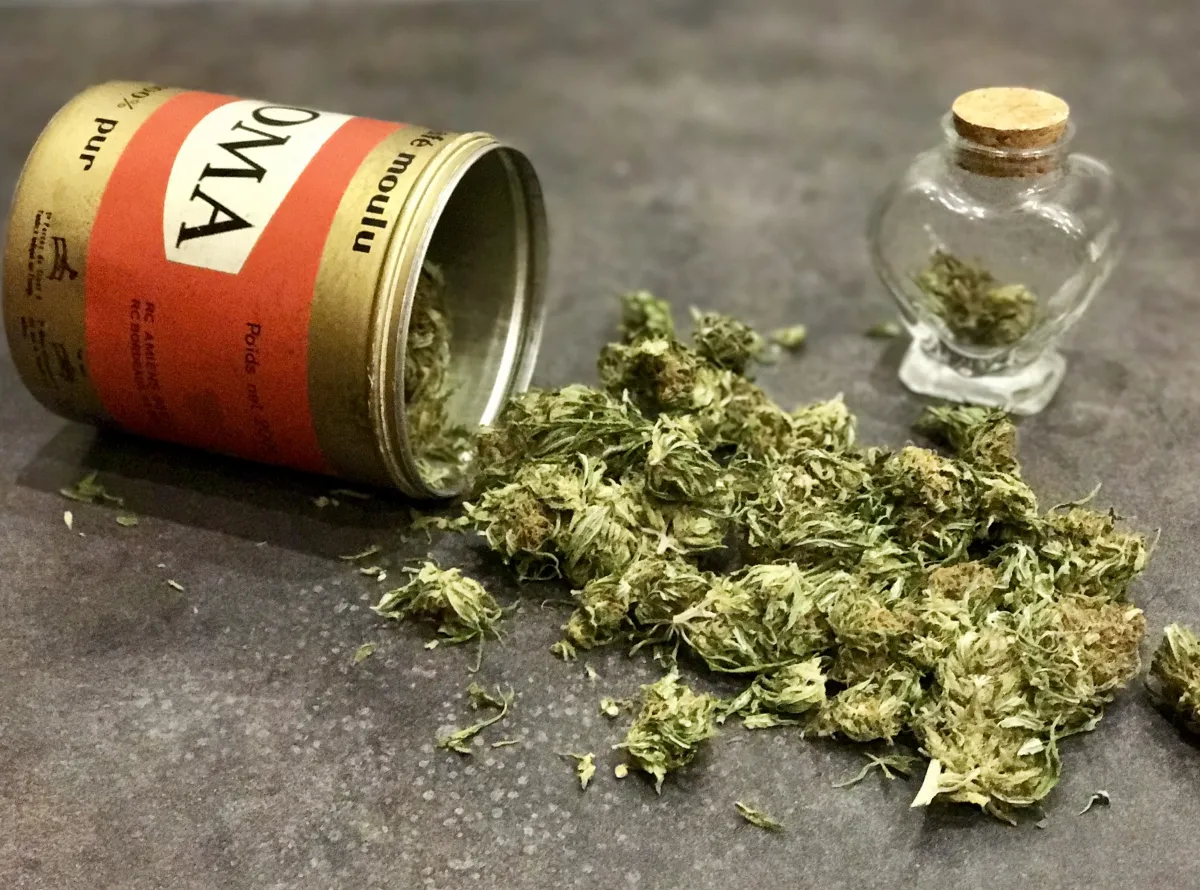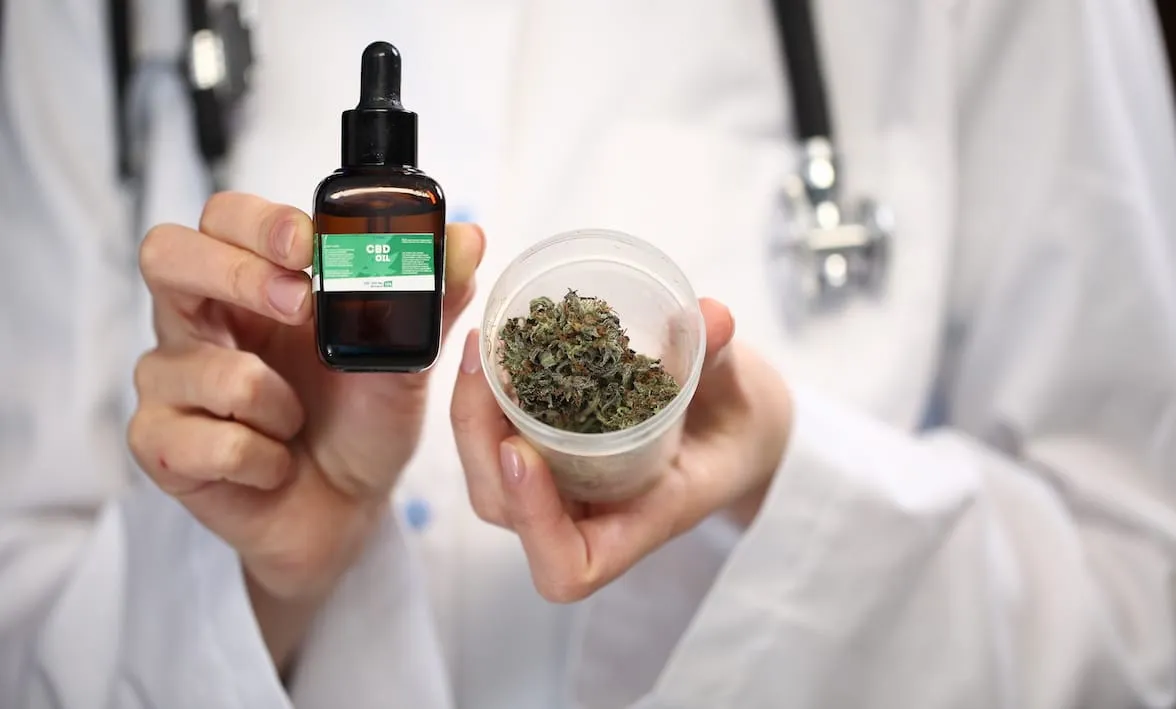Removing parasites with cannabis: is it real? Creepy, crawly and nightmarish… parasitic worms infect up to two billion people worldwide and cause widespread disease, especially in developing countries. Cannabis has been an important folk remedy for parasitic worms for centuries, and there is substantial modern evidence to support its use.
Communities around the world are still using cannabis for parasites
Around the world, various peoples use traditional cannabis-based medicines for parasite control, especially in developing countries where traditional medicine continues to be widespread and where parasitic infection rates are generally higher.
The Aka people of the Congo Basin have recently been reported to be heavy users of cannabis, which may be an example of unconscious use for self-medication. The Aka probably do not associate the use of cannabis with any protection against worms, but smoke it simply for recreational and social purposes.
Interestingly, the Aka also make extensive and targeted use of another plant for parasite control, but it is not known how effective this plant is. However, smoking cannabis appears to have a positive effect as cannabis smokers have been observed to have fewer intestinal worms compared to their non-cannabis using peers.

Many other communities deliberately use cannabis to control parasitic pests. Village communities in the northern Indian state of Uttarakhand continue to use cannabis preparations to treat parasitic worms. Similar use has also been reported in the neighboring state of Himachal Pradesh, as well as in communities in Andhra Pradesh, a southeastern Indian state 2,000 kilometers away. And this is only part of India and the surrounding region where such use is documented. However, there is no doubt that such use is also prevalent throughout much of India and the surrounding region, although it is not officially documented.
A 2010 report in Uganda emphasized that cannabis is widely used in the southwestern agricultural region of the country to control worms in chickens, which are an important source of eggs and meat for the local population. In fact, it seems that people are treating their animals with cannabis to control parasitic infections, and they have been doing so for some time, at least as long as they have been treating themselves.
Ancient civilizations fought parasites with cannabis
Cannabis has been used as a folk remedy for intestinal worms in many different communities around the world for hundreds of years. From Europe to sub-Saharan Africa and South-East Asia, references to cannabis as a treatment for intestinal parasites in humans (and the livestock from which they survived) abound in historical texts.
Here are a few examples:
- Indian traditional medicine has certainly been using cannabis as an antihelminthic agent for quite some time (helminths are parasitic worms; antihelminthics are drugs used to treat them). A respected work, the CRC World Dictionary of Medicinal and Poisonous Plants, states that cannabis is used in the traditional systems of Ayurvedic medicine, Unani and Siddha medicine as an antihelminthic agent (among many other uses) for humans and cattle. In China, the seeds and juice of the freshly squeezed leaves were used as antihelminthic agents.
- In Europe, the famous herbalist Nicholas Culpepper wrote in his 1653 opus «The Complete Herbalist» that cannabis «is considered very good for the destruction of worms in humans and animals».
- In the United States before prohibition, hashish was apparently sometimes used to «expel the Taenia solium».

Is cannabis effective in controlling intestinal parasites?
Surprisingly, there is a dearth of current research on the ability of cannabis to fight intestinal parasites. This fact was highlighted by renowned scientist Raphael Meshulam, who in his essay «Towards Cannabinoid Drugs» noted the potential of cannabis as an antihelminthic agent, but no experimental studies in this area have been reported. Fortunately, there are now many effective drugs available to treat parasites.
One small study conducted in Uganda on the use of medicinal plants to treat livestock showed that cannabis had some activity against the parasitic roundworm Ascari suum, which can infect both pigs and humans. However, the efficacy of cannabis was lower than some of the other plant species tested in this study, and as a result, cannabis was not included in the list of recommended candidates for further research. Ascari suum is a species of nematode and cannabis has also been shown to be active against some other nematode species.

Cannabis against nematodes (roundworms)
Nematodes are a diverse group of roundworms whose length can range from microscopic sizes to over one meter. In addition to ascarids, their list of species known to humans includes ankylostomes, vlasoglaves, pinworms and the worms that cause filariasis.
There is evidence that cannabis may be useful in controlling filariasis worms, although its direct effectiveness against them has not been proven. This is due to the ability of cannabis to kill the larvae of the mosquito Culex quinquefasciatus, the main insect vector responsible for transmitting the worms from their intermediate owners, such as mosquitoes, to their final human host.
Filariasis is caused by filariasis worms and is a serious disease that affects up to 120 million people worldwide. The disease can cause genital problems, lymphedema (swelling of lymphatic tissue) and elephantiasis (massive swelling of the arms and legs) in close to 40 million people.

Cannabis versus trematodes
In addition to fighting nematodes, cannabis is active against trematodes, a large and diverse class of flatworms. Trematodes, also known as suckers, are flat, oval-shaped worms with «suction cups» that they use to cling to and feed on living tissue, much like leeches. Although they most commonly parasitize fish and invertebrates, some species also infect humans.
One of the most dangerous trematodes affecting humans is Fasciolopsis buski, a giant intestinal biped that reaches about 7.5 centimeters in length and infects more than 10 million people worldwide, mostly in South and Southeast Asia. Studies have shown that cannabis extract is highly effective against F. buski in pigs, surpassing even oxyclozanide, which is the current standard treatment.
Another important trematode for humans is the schistosome, which infects the blood and is known as the cause of schistosomiasis. In humans it is also known as bilharziasis or «snail fever». Schistosomiasis is a significant global health problem and infects hundreds of millions of people worldwide, second only to malaria. Although cannabis has not been shown to be directly effective against schistosomiasis, the endocannabinoid system has been shown to be involved in the progression of the disease.
A 2009 study showed that levels of the endocannabinoid anandamide were increased in the livers of mice that had undergone schistosomiasis, and CB1 receptor expression was also increased. The researchers concluded that this increase was due to the involvement of the endocannabinoid system in the development of the disease itself; however, it could be as a response to the disease. If the former, cannabinoid antagonists may be helpful; if the latter, agonists will be more effective.

So why is cannabis effective against these parasites?
There appear to be two main ways in which cannabis can have an effective effect on parasitic worms such as protozoa and amoebae. The first way relates to the presence of a proprietary endocannabinoid system in target parasites that is exposed to THC or other cannabinoids, which affects their ability to survive and reproduce.
There is some evidence of this in a number of species. Recent studies on Acanthamoebae and Hartmanellae have shown cannabinoids to be particularly effective in controlling them. Separate studies have also shown the presence of a rudimentary endocannabinoid system in the amoeboid slime mold Dictyostelium. An interesting article describes several species of nematodes that are found with cannabinoid receptors.
However, there is also evidence that at least one species of nematode lacks a functional endocannabinoid system (this has also been found in several other primitive organisms that are on a separate branch of the evolutionary tree, such as marine sponges and anemones). Hence, cannabis likely affects such parasites through a different mechanism. This may be due to some other properties of cannabinoids that are not yet fully understood, but there is also another possible hypothesis that deserves attention: it involves terpenes.
Like many other plants, cannabis contains a large number of terpenes, and it seems that many plants traditionally used for parasite control have some terpenes in common. In recent years, it has become clear that terpenes play an important role in medicine, and it seems that parasite control is another of their beneficial properties.

The role of terpenes in the control of intestinal parasites
Many different types of terpenes and terpenoids are common in nature, some of which have interesting potential applications. Studies show that some of these substances can kill or inhibit the growth of protozoan organisms such as amoebae, nematodes and trematodes.
For example, a study that tested the effects of 34 different plant terpenoids against the nematode Caenorhabditis elegans found that several terpenes commonly found in cannabis, such as nerolidol, geraniol, citronellol, limonene and eugenol, have strong antinematode effects.
In another paper, the activity of fifteen tropical plant extracts against the cattle disease-causing trematode Fasciola hepatica was investigated. It was found that five extracts derived from plants with high content of different terpenes were very effective against this parasitic infection. Artemesia, for example, contains eucalyptol, linalool, myrcene, caryophyllene and pinene, which are also present in cannabis in significant concentrations. The terpenes geraniol and citronellol have also been shown to be effective against protozoan organisms such as Giardia and Cryptosporidium.

How and why did cannabis preparations disappear from traditional folk medicine?
Hemp is by no means the only plant that has been used in folk medicine to fight worms. Its widespread use can probably be explained by the fact that people have always had access to cannabis and could take it with them almost anywhere. Moreover, it is believed that if the plant has been used so often and for so long, then it must have been particularly effective.
Nowadays, however, many communities that traditionally used cannabis to fight intestinal parasites have either lost this opportunity due to international bans or can no longer use it because of them. Thus, traditional medicine to help manage parasitic infections has disappeared from the pharmacopeia, which could put a great strain on traditional health care systems in dealing with the problem.
Removing parasites with cannabis: is it real?
If cannabis-based medicines were to become authorized again, they could provide an alternative treatment for several major parasites, especially given the fact that the prevalence of intestinal diseases is usually much higher in most developing countries, which is where cannabis has traditionally been grown.











